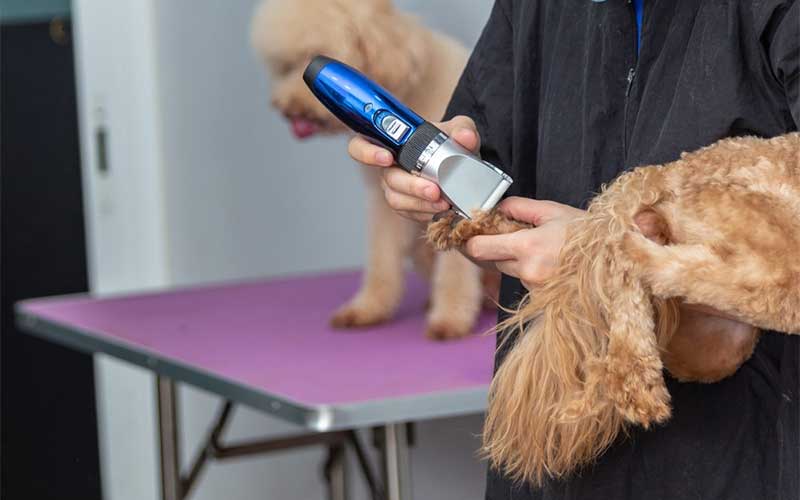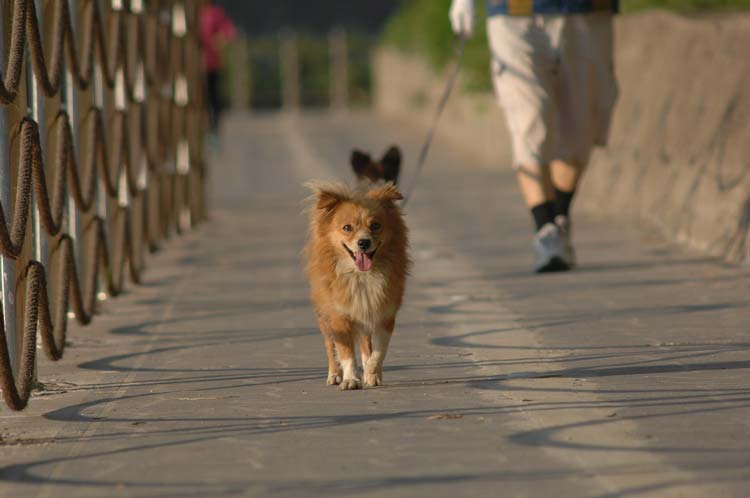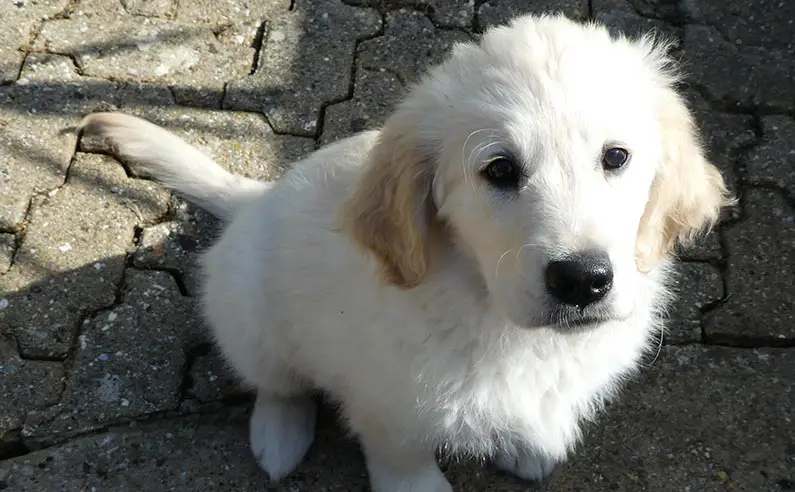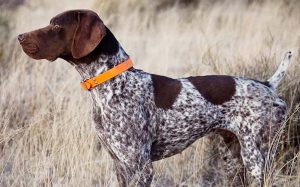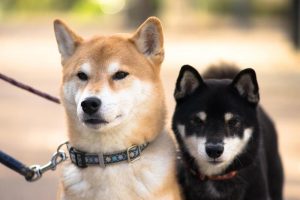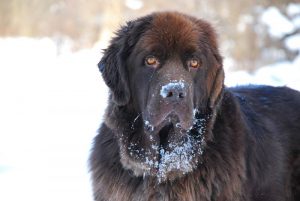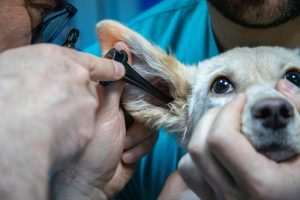
The Border Collie is a keen, athletic, and intelligent dog that’s easy to train. As a medium-sized breed, Border Collies make good pets for the family with proper care and food. So, you might be wondering: how much should you feed a Border Collie? What are the considerations in scheduling their meals?
We came up with this guide to help you, as the pet owner, to feed your little canine friend with the right kind and amount of food. This will help them grow to be healthier, stronger, and resistant to most illnesses. Part of what makes a dog happy is good nutrition.
Like all dogs, a Border Collie starts as a puppy so they need a lot of nutrition from their earlier years before they grow into a healthy adult. As a responsible pet owner, you need to know the type of food they need to eat plus the amount per day to avoid going overboard with the weight.
See also:
Most dogs also have allergies and other health issues – the Border Collie is no different. That’s why we’re doing the work for you by listing down the dos and don’ts for feeding your canine friend to avoid health setbacks like digestive upsets.
Page Contents
How Much Food to Feed a Border Collie Puppy?
A Border Collie will need 4 to 6 meals per day if it is still a puppy, wherein it will need about 700 calories or at least 1 cup a day. However, once your pup turns into an adult, you can increase it to 1,000 calories per day depending on the physical activity levels.
Adult Border Collies should be given meals about 2 to 3 times a day. Make sure to give them the right kind of food that is specifically tailored for medium-sized breeds (not all dog food is the same!). Consider high-protein foods for your energetic Border Collie.
Most Border Collies are not very voracious eaters and won’t necessarily beg for food all the time. You can settle with feeding them twice a day if they’re fully grown. Most of them even leave some leftovers in the morning so don’t put a lot in their food bowl.
When it comes to feeding Border Collies, as with most dogs, keep their source of water close. This will help them chew their food properly and digest it without much problem. Having access to water is important because our pets need to be hydrated due to the inability to sweat like humans.
Feeding Schedule
A good feeding schedule for your Border Collie depends on whether they are puppies or adults, as well as their physical activities throughout the day. Here are example feeding schedules that you can use as your guide (feel free to edit as you wish):
| Age of Border Collie | Feeding frequency | Suggested schedule: |
| Puppy | 4 to 6 times a day | BreakfastLunchEarly dinnerBefore going to bed (2 hours before sleeping) |
| Adult | 2 to 3 times a day | Morning Late afternoon or evening |
If you can’t attend to the schedule all the time, you should ask one family member to feed the puppy or adult Border Collie while you’re away so that they will always stick to the schedule. If you don’t have anyone at home, you can invest in an automatic feeder that dispenses food at certain times of the day.
Here’s another feeding tip: for dogs with a history of bloat, you can use a special raised food bowl stand to help them eat food at a level height. This will keep them away from bloat as they are feeding properly at the right height of the food bowl.
Growth Chart
Border Collies grow differently depending on their gender, genetics, food, and other factors. To help you figure out if your Border Collie is the right weight for their age, here are some weight charts to guide you in choosing a good feeding schedule and amount of food for your dog:
| Age in months | Weight in Kilogram | Weight in Pounds |
|---|---|---|
| 1 month | 1.8-2.2 | 4-5 |
| 2 months | 4.0-5.4 | 9-12 |
| 3 months | 6.8-10 | 15-22 |
| 4 months | 8.6-14 | 19-30 |
| 6 months | 11-19 | 25-43 |
| 8 months | 13-23 | 28-50 |
| 10 months | 14-23 | 30-52 |
| 12 months | 14-24 | 30-54 |
| 24 months | 14-25 | 30-55 |
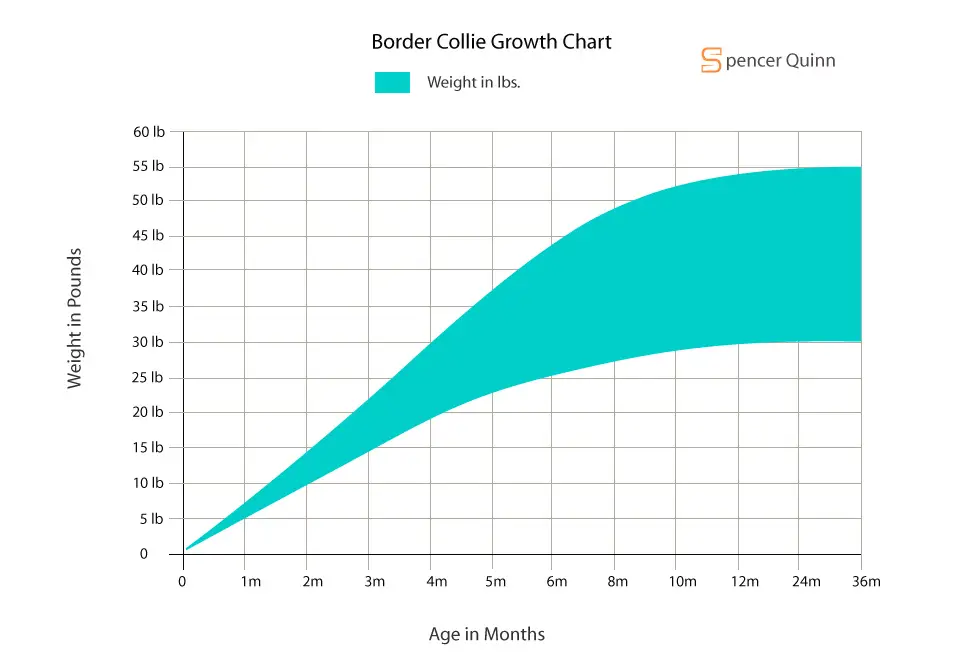
As seen above, you’ll find that females tend to have lesser weight than male Border Collies. Their growth is usually steady but will slow down after their first year. For you to know what to expect during their growth stages, we’ve detailed a Border Collie’s puppyhood journey below:
2 to 4 weeks old
Your Border Collie puppy at 2 weeks of age should only be nursed by the mother. They shouldn’t be fed with any solid food yet since they can’t digest it properly. A Border Collie puppy will also have not-so-good eyesight that’s still in development.
Usually, your pup will just roam around the puppy quarters with the mother around so they get easy access to the mother’s milk. Let the mother constantly lick/groom the puppies and provide a safe and undisturbed space for your Border Collie litter and the mother.
Once your Border Collie puppies turn 4 weeks of age, they will become more open to getting weaned and eating solid food. Start offering them a mix of puppy kibble and water to help them easily digest the food. From time to time, the mother will still nurse the pup, anyway, albeit not as much as before.
The adjustment of the water levels can be done every 1 to 2 days of your puppies eating them properly. Don’t be discouraged if they don’t eat at first – keep trying until your Border Collie likes the solid food. Over 4 to 6 weeks, your Border Collie will eventually eat solid food.
6 weeks old
When your Border Collie puppy turns 6 weeks old, they will enjoy exploring the outdoors even more. Make sure to puppy-proof your surroundings to avoid getting your little canine friend lost and getting involved in accidents.
During this time, you can start scheduling meals for your Border Collie puppy if they’ve already been feeding on the dry kibble with little to no water in the mix. This means that the Border Collie puppy is ready to be fed regularly.
A good rule of thumb to start with is at least 5 to 6 meals a day, which are equally divided into portions. For instance, you can serve the Border Collie in a food bowl in the morning, near lunch, a little after lunch, early evening, and 2 hours before bed.
The mother of the Border Collie puppy will still nurse the youngster but only in minimal amounts. Aside from that, the mother will also do her job of making the puppy more independent by becoming less and less available for the little ones for nursing (it also hurts the mother a little more during this time).
8 weeks old
A Border Collie puppy at 8 weeks of age will still need a scheduled meal as continued from before. However, you can lessen the number of meals per day to only 3. The recommendation for the amount of food for your Border Collie puppy during this time is 1.5 cups a day.
The 1.5-cup amount will need to be divided equally throughout the day. For instance, if it is 3 times a day, you can feed your Border Collie puppy with 1/2 cup for each meal. Again, you may consult our chart or talk to your vet if you think your puppy is lacking in weight or a little obese for their age.
By this time, the Border Collie pup should already be eating solid food as eagerly as possible. Consider the following tips when feeding them:
- Choose puppy food suitable for their age and weight
- Never store unfinished puppy food sitting longer than 20 minutes
- Keep away the puppy food from direct sunlight or humid areas
- Ask your vet before changing their diet or including home-cooked meals
10 to 12 weeks old
During their 12th week, the Border Collie will also be more mature and may need to be trained properly. You can get also them enrolled in an obedience class as well if you don’t have a lot of time and experience in-house training a Border Collie or any dog.
Aside from that, by this time, your Border Collie should get their vaccinations for safety. Continue the usual routine of 3 meals a day with 1.5 cups divided for each meal. Ensure that the puppy/dog will get their food fresh and properly prepared with easy access to water.
Most breeders and pet owners switch their Border Collie to adult food by this time but do ask your vet about it first. Changing food formulas for a dog can take its toll on its tummy. Some dogs may also have a history of food allergies so you have to be very careful when switching brands.
If you do decide to switch food, make sure to do it gently to avoid shocking your stomach. First, you should mix a little of the new food and more of the old food, much like how you did the mix of water and kibble when you were teaching them how to like dry food (transitioning from milk to puppy food).

Recommended Food
Now that you know how much and how often to feed your Border Collie, what should you feed them? Here’s a list of foods that we recommend to your Border Collie for breakfast, lunch, or dinner:
1. Chicken and similar protein sources
Meat is important for dogs because they need protein to power up their daily activities. Chicken is a very good example of protein meat that’s healthy for a Border Collie. If your dog has allergies to most food, your vet can recommend an elimination diet of just chicken and rice.
When choosing chicken for your Border Collie, you can either get it from natural/organic dog food (slightly pricier than standard supermarket brands) or from the wet market, which is a good idea for those who want to feed their Border Collie with raw food.
2. Vitamin A foods
Carrots, egg yolk, and other foods rich in vitamin A are good for a Border Collie. This breed is highly susceptible to eye problems such as CEA (Collie eye anomaly), progressive retinal atrophy, and even lens luxation.
To help fend off the likelihood of such eye problems, keeping your Border Collie healthy with foods rich in Vitamin A will help them to see clearly and thus, be able to enjoy life even more with their loving owner.
3. Foods with Glucosamine
Like many breeds, the Border Collie is prone to hip dysplasia, which will make them unable to play around properly due to joint problems. Therefore, feeding them foods that are rich in glucosamine will help in strengthening their joints.
Look for seafood (mussels), chicken feet, bone broth, and the shells of most crustaceans like shrimps and crab outer shells. Moreover, most dog foods nowadays already have glucosamine as part of their ingredients and nutrients so it’s easy to grab one from the market – mostly from quality dog food.
Foods to Avoid
Border Collies don’t do well with most carbohydrates like soy, corn, and wheat because that can make their tummy react badly. With that said, Border Collies aren’t as highly allergic as other breeds but you should still be careful around foods with too many unnecessarily fillers.
Likewise, you should also know if your Border Collie has a history of allergies based on the parents’ records (from the vet). Moreover, consider avoiding food that has too many preservatives and artificial flavors, and instead, you should give foods rich in protein.
FAQs on Feeding a Border Collie
To help you decide thoroughly and properly on your Border Collie’s diet, here are some frequently asked questions and facts on feeding them:
Like any dog, Border Collies differ in weight and physical activities. If your dog tends to be a sporty type, they will likely need more food per meal or you can increase the frequency and the total daily amount of food that you will give to them.
Aside from that, younger dogs may require a different amount of food and nutrients compared to older or senior dogs. Border Collies that are considered seniors and often stay inside the house should be given foods with fewer calories because they won’t get a lot of outdoor time to burn them.
Your budget is also important when choosing food for your Border Collie. You shouldn’t compromise on your dog’s health but always mind your budget when buying dog or puppy food. There are many options out there for different breeds – including some made for the Border Collie.
Consider nutritious and balanced meals for your Border Collie as well. Most people incorporate supermarket and/or preservative-free organic dog food with raw or home-cooked meals. This will help give the dog balanced nutrition and a variety in taste so that they can get used to different foods.
Yes, Border Collies can be given treats. However, we advise you to stay away from treats that have too many preservatives and additives. Most pet owners advise to only give treats when necessary, such as during training or to distract them while grooming.
Treats can be eaten usually between meals – especially if your Border Collie has long gaps between meals. Don’t give them too much because it could lead to health problems later on, such as obesity. Moreover, always include the number of calories of the treats in the daily food intake of your dog.
A Border Collie can be given a raw diet as advised by your vet or breeder or if you decide to do away with foods that are too high in preservatives and unwanted fillers. Raw feeding your Border Collie may include vegetables, meat, fish, bones, and eggs.
Most pet owners of a Border Collie greatly recommend raw feeding for dogs with skin and coat problems. If your dog has been sensitive to many supermarket foods, why not try a raw diet for them? Just make sure that you prepare the food properly and maintain a balance between nutrients.
Conclusion
With a typical lifespan of 10 to 14 years, expect a Border Collie to live longer if you give them the right amount of food and proper care that they deserve. You, as a pet owner, should be responsible for giving your canine friend the correct nutrition for their age and needs.
We hope that this guide helped you in choosing the best kind of food for your Border Collie, as well as properly scheduling their meals, how much to give, what to put in their food bowl, and other tips for feeding them properly.
